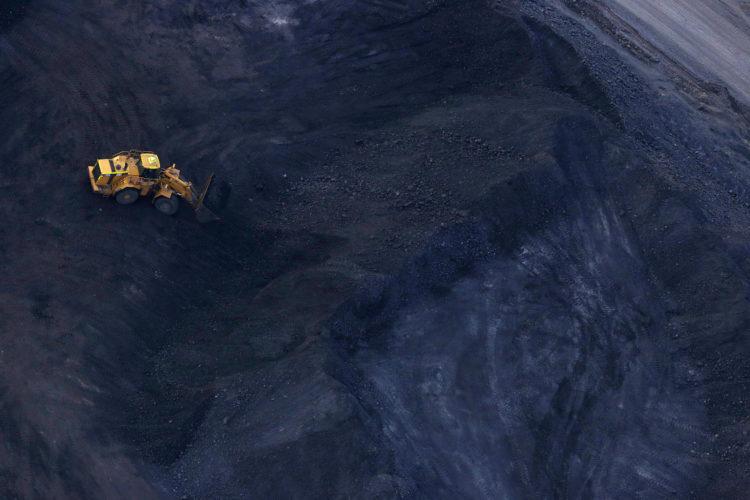The World’s Biggest Mining Company Is Selling Out of U.S. Shale

published Jul 26, 2018 8:09:39 PM, by David Stringer and Kevin Crowley
(Bloomberg) —
BP Plc agreed to pay $10.5 billion, its biggest acquisition in almost two decades, for most of BHP Billiton Ltd.’s onshore U.S. oil and natural gas assets, including in the prized Permian Basin.
The deal gives the London-based energy giant a key position in the Permian, the world’s fastest-growing major oil region that’s upended global markets, and a possible signal that Big Oil has mostly rebounded from the 2014-2016 price crash. BP will also add positions in the Eagle Ford and Haynesville basins in Texas and Louisiana.
“We’ve just got access to some of the best acreage in some of the best basins in the onshore U.S.,” BP’s upstream chief executive Bernard Looney said in a statement. The Permian produces about 3.4 million barrels a day, which would make it the fourth-largest member of OPEC, behind Saudi Arabia, Iraq and Iran.
Rising oil prices have boosted prospects for shale sector deals, while the Permian is a focus for industry consolidation as technological advances allow explorers to drill ever-longer sideways wells. Concho Resources Inc. agreed in March to acquire RSP Permian Inc. in an $8 billion, all-stock transaction.
“The Permian is the largest U.S. shale play with the most inventory so it’s not hard to see the long-term attraction,” said Leo Mariani, an Austin-based analyst at NatAlliance Securities LLC. “Everyone and their brother has been buying into this basin over the last 10 years and it seems BP is among the last to do so of the majors.”
For BP, the deal is a “transformational acquisition,” Chief Executive Officer Bob Dudley said in a separate statement, and will add current production of about 190,000 barrels of oil equivalent a day and discovered resources of 4.6 billion barrels of oil equivalent. Acquiring the operations will give BP access to wells that pay back in months rather than the years common in bigger offshore projects.
Melbourne-based BHP, the world’s top miner, flagged plans last year to exit the shale sector amid pressure from investors including activist Elliott Management Corp., which argues its foray into onshore oil and gas, along with other decisions, wiped out $40 billion in value. A $20 billion spree on two U.S. oil and gas acquisitions in 2011 had been too costly and poorly timed, while the shale unit didn’t deliver expected returns, Chief Executive Officer Andrew Mackenzie said last year.
The BP deal and a $300 million sale of Fayetteville assets to a unit of Merit Energy Co. complete its exit from the sector, and proceeds will be returned to shareholders, Mackenzie said in a statement.
‘Problem Child’
“Shale has been a problem child, so it’s good that to finally resolve that,” said Sydney-based Andy Forster, senior investment officer at Argo Investments Ltd., which holds BHP and manages more than A$5 billion ($3.7 billion). “It’s a pretty good price too.”
BP was among as many as 60 companies that participated in the first round of bidding for BHP’s assets, Dudley said in June. BHP also drew initial offers from separate partnerships headed by Chevron Corp. and Royal Dutch Shell Plc, people familiar with the process said in June. The seller had expected to receive about $10 billion or more in a single deal for the entire unit, or as much as $13 billion for piecemeal sales, according to the people.
The sale process has been completed faster, and at a higher price, than expected, Melbourne-based RBC Capital Markets analyst Paul Hissey said in a note. RBC had forecast BHP would garner about $8 billion for the assets. Completion of the deal may “provide the clear air for a refresh of the executive management group,” Hissey said.
BHP will recognize a $2.8 billion impairment against the onshore unit in financial results next month, the company said. The deals are expected to be completed by the end of October, BHP said. The company’s shares rose as much as 2.7 percent in Sydney trading, and were 2.1 percent higher as of 11:04 a.m.
Explorers have rebounded from the oil price crash that started in 2014 and are generating strong cash flows after cutting costs and benefiting from a global crude price trading around $75 a barrel, about 46 percent higher than a year ago.
Before the deal, BP had expected to produce about 60 percent gas and 40 percent oil by 2020, a reversal from 2014 when it was the opposite. Last year, six of BP’s seven major projects brought on stream were gas.
Along with growth, producers are returning cash to shareholders. BP will lift its dividend by 2.5 percent, the first increase in 15 quarters, it said in the statement.
–With assistance from Joe Deaux.To contact the reporters on this story: David Stringer in Melbourne at dstringer3@bloomberg.net ;Kevin Crowley in Houston at kcrowley1@bloomberg.net To contact the editors responsible for this story: Jason Rogers at jrogers73@bloomberg.net ;Reg Gale at rgale5@bloomberg.net Aaron Clark, Ramsey Al-Rikabi



No Comment